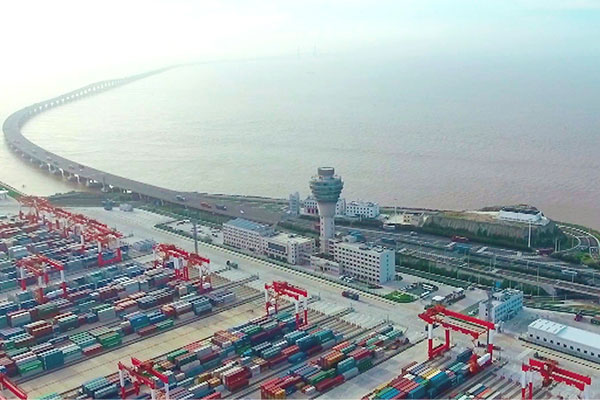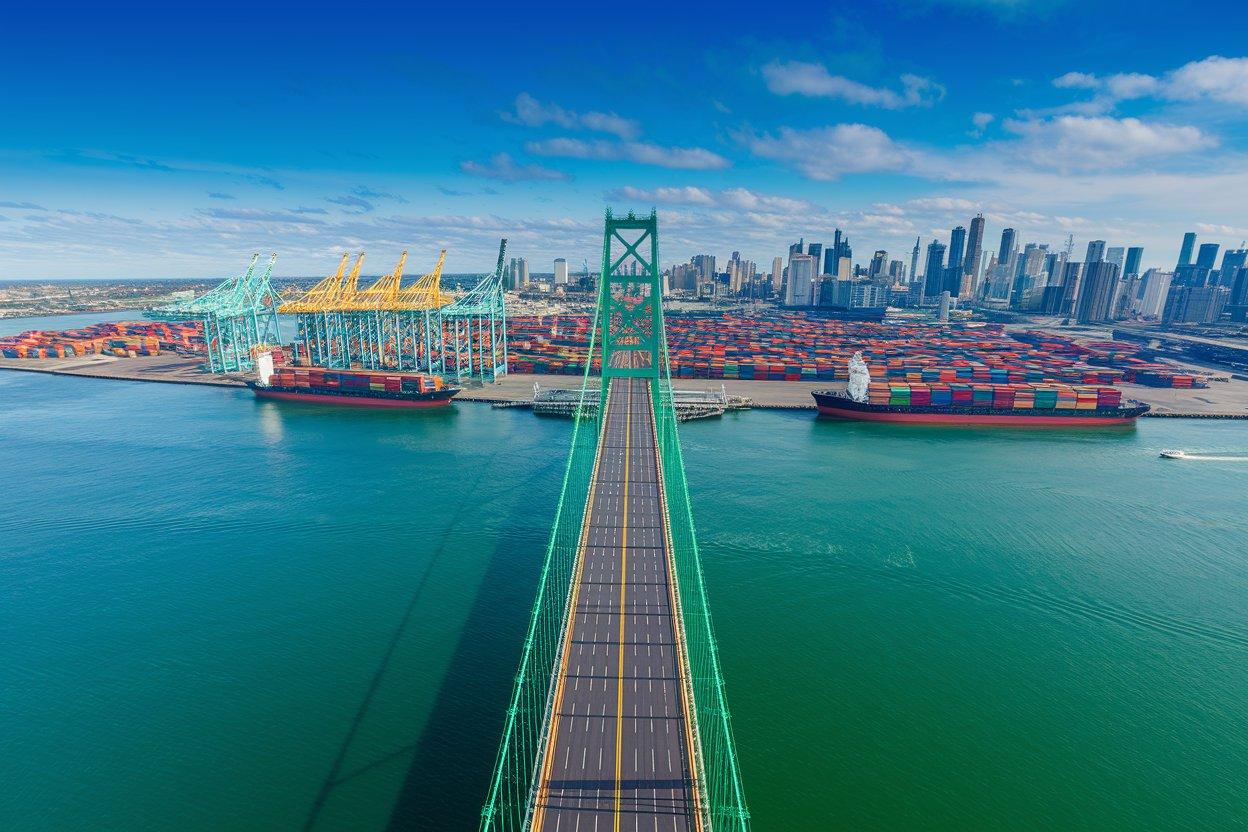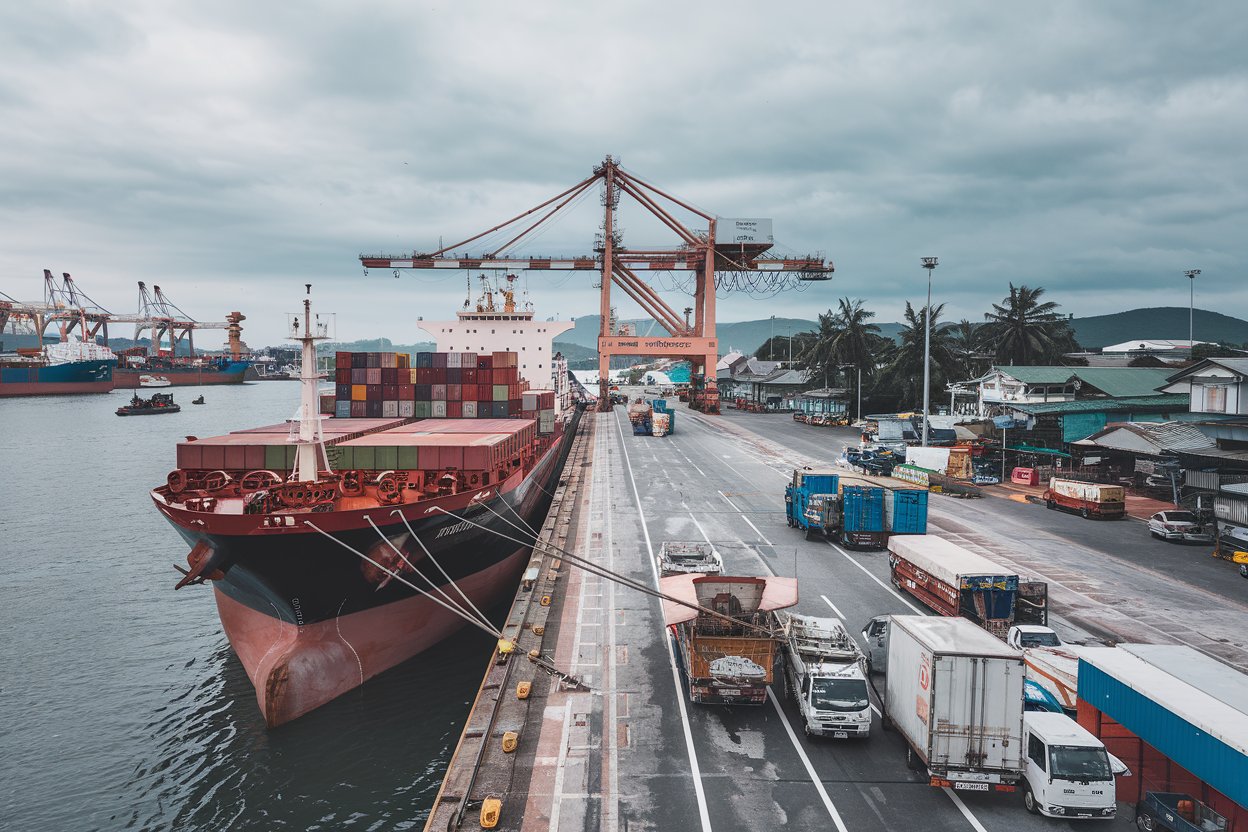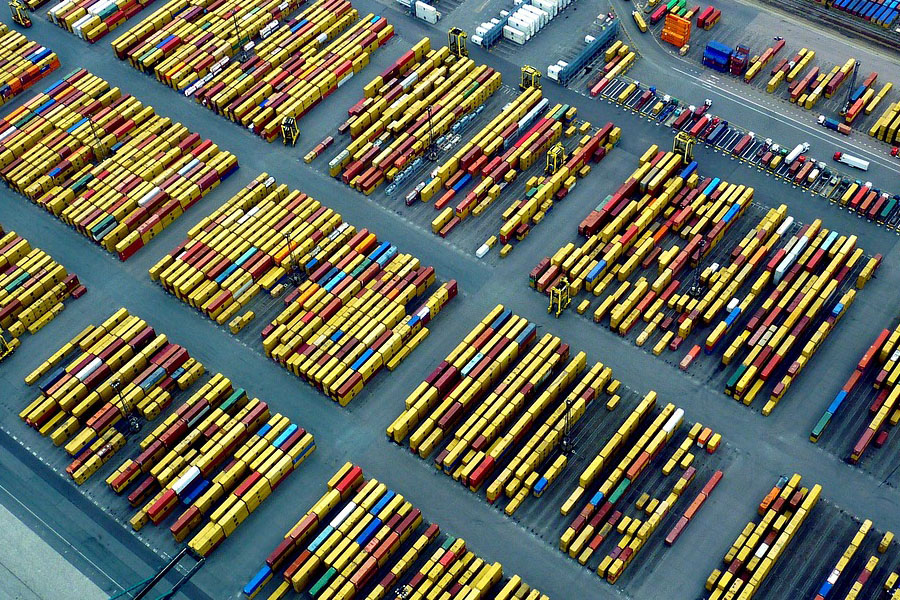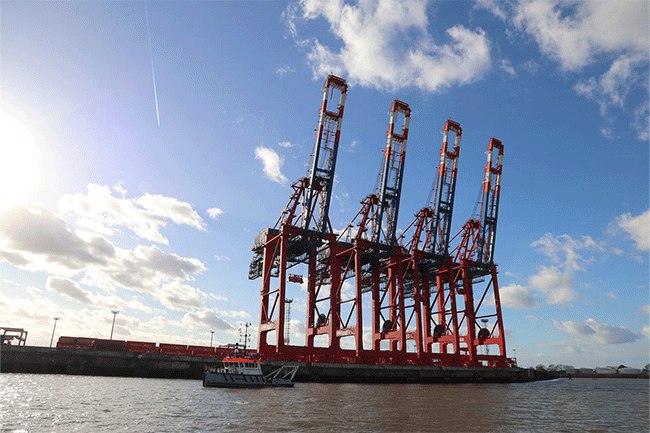- Shanghai ZhongShen International Trade Co., Ltd., with 20 years of experience in foreign trade import and export agency services.
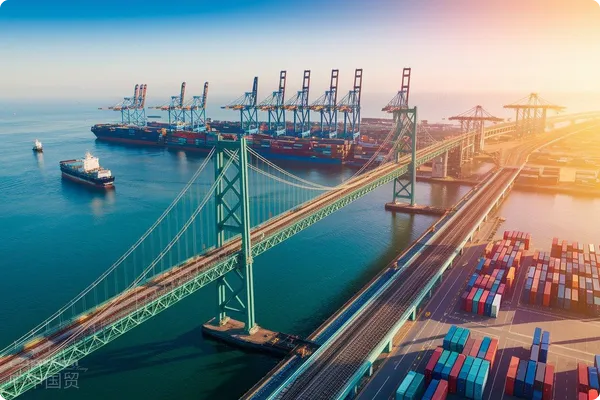
Introduction
With the increasing development of global trade, the demand for juice products in the international market continues to grow. As one of the important juice-producing regions, Russia's abundant fruit resources and mature juice processing technology present numerous opportunities for importers in our country. However, importing juice from Russia is not an easy task, as it involves a series of complex trade processes, regulatory policies, and documentation handling. From a professional perspective, this article will provide insights into the key points of importing juice from Russia, helping you smoothly carry out your import business.
?Zhong Shen?professional competence
Documentation Processing
During the importation of fruit juice, document processing is of utmost importance. From commercial invoices, bills of lading, packing lists, to...Certificate of OriginDocuments such as books, health certificates, etc., must be accurate and error-free. ZhongShen International Trade boasts a professional documentation team proficient in the preparation and review of various trade documents. Taking the commercial invoice as an example, it reflects the value of the goods and must include detailed information such as product descriptions, quantities, unit prices, and total amounts. Our team ensures that the invoice content precisely matches the actual goods to avoid customs clearance delays or fines due to document discrepancies.
At the same time, the Certificate of Origin is also one of the indispensable documents, as it can prove the country of origin of the goods and is crucial for enjoying preferential tariff treatment. We will assist clients in communicating with Russian suppliers to ensure the timely acquisition and accurate completion of the Certificate of Origin.
Logistics Arrangement
The logistics process directly affects whether the goods can arrive on time and safely. When importing juice from Russia, common transportation methods include?Ocean shipping?and railway transportation. Sea freight is relatively low-cost but has a longer transit time, while railway transport offers greater timeliness, making it particularly suitable for juice products that require high freshness.
ZhongShen International Trade has established long-term cooperative relationships with multiple renowned shipping companies and rail freight forwarders, enabling us to optimize logistics solutions based on customer needs. For ocean freight, we book shipping space in advance to ensure timely loading and departure of goods. During the transportation process, we monitor cargo status in real time and promptly address potential issues, such as delays caused by adverse weather conditions. For rail transport, we are well-versed in relevant regulations and procedures, efficiently handling consignment, customs clearance, and other matters to ensure fast and secure delivery of goods to domestic destinations.
VTB in the Russian market?Foreign exchange settlement?Advantages
When conducting trade with Russia, foreign exchange settlement is a crucial step. VTB Bank, as a major financial institution in Russia, provides numerous conveniences for Sino-Russian trade.
The foreign exchange settlement process generally proceeds as follows: After the importer receives and inspects the goods, they will make payment to the exporter according to the contract terms. Conducting foreign exchange settlement through VTB Bank offers the advantage of relatively fast processing speeds, which can reduce funds in transit time and improve capital utilization efficiency. Additionally, VTB Bank has extensive experience and a mature system in Sino-Russian trade settlements, with relatively flexible trade background reviews, enabling better adaptation to the actual conditions of Sino-Russian trade.
For example, in certain situations, adjustments to the settlement method may be necessary due to the unique nature of trade contracts or market fluctuations. VTB Bank is capable of providing clients with reasonable solutions in compliance with regulations, assisting importers in smoothly completing foreign exchange settlements. For enterprises importing juice from Russia, leveraging VTB Bank's convenient settlement services can effectively reduce settlement risks and ensure the smooth progress of trade.
Southeast Asian marketImport and exportProcess and Solutions (Taking Imported Juice as an Example)
Import Process
1. Market Research and Supplier Selection: First, the importer needs to conduct in-depth research on the Southeast Asian juice market to understand local juice manufacturers, product quality, pricing, and other relevant information. By participating in industry exhibitions, online platforms, and other channels, suitable suppliers can be screened. Initial communication with these suppliers should then be established to gather key information such as their product supply capacity and delivery timelines.
2. Signing the Contract: After selecting the supplier, both parties need to sign a detailed trade agreement. The contract should clearly specify key terms such as product specifications, quantity, price, delivery schedule, payment method, shipping method, quality standards, and inspection and quarantine requirements. For instance, regarding the quality standards of juice, specific parameters such as juice composition, sweetness, acidity, and microbial indicators should be clearly defined to avoid quality disputes later on.
3. Handling Licenses and Certifications: Although Zhong Shen International Trade does not directly handle certification services, we assist clients in understanding and obtaining the necessary certifications. When importing juice, it is generally required to secure a food import license, a sanitary certificate, and a certificate of origin. The food import license must be applied for through relevant domestic authorities by submitting corporate qualifications, product information, and other required documents, and it will be issued upon approval. The sanitary certificate and certificate of origin are processed by the supplier locally. We will assist clients in communicating with suppliers to ensure the compliance and validity of these certificates.
4. Arrange Transportation: Based on the transportation method agreed upon in the contract, arrange for the shipment of goods. If sea freight is selected, it is necessary to book shipping space in advance and complete the consignment procedures. Before the goods are loaded onto the ship, inspection and supervision of the loading process must be conducted to ensure that the quality and quantity of the goods meet the contract requirements. Additionally, promptly obtain transport documents such as the bill of lading.
5. Customs Clearance: Upon arrival at the destination port, the goods must undergo customs clearance procedures. During this process, documents such as the commercial invoice, bill of lading, packing list, certificate of origin, sanitary certificate, and food import license need to be submitted. Customs will inspect the goods and levy duties. The goods can only be released after all customs clearance formalities are completed.
6. Pickup and Sales: After customs clearance is completed, the importer can arrange for the pickup of the goods and transport them to the designated location for storage or sale. During the sales process, it is essential to comply with relevant domestic laws and regulations to ensure the quality and safety of the products.
Solution
Regarding potential issues with importing fruit juice into the Southeast Asian market, ZhongShen International Trade offers the following solutions. In terms of supplier selection, leveraging our extensive industry experience, we can recommend reliable suppliers to clients and assist them in conducting on-site inspections or background checks. For the drafting of contract terms, our team of professional lawyers can provide legal consultation to ensure the rigor and legality of the contract clauses.
During the customs clearance process, due to potential differences in customs policies across different regions, we have established a comprehensive information collection and analysis system. This enables us to stay updated on the latest policies and requirements of various customs authorities, prepare the necessary documentation in advance, and enhance clearance efficiency. Additionally, we maintain close collaboration with customs brokers in various locations, allowing us to swiftly and effectively address any issues that may arise during the clearance process.
Challenges and Opportunities in the Current International Trade Landscape
Challenges
The current international trade landscape is complex and volatile, presenting numerous challenges for importing juice from Russia or Southeast Asia. The rise of trade protectionism may lead some countries to impose higher tariff barriers or non-tariff barriers. For instance, certain nations might increase import tariffs on juice, thereby raising costs and diminishing the product's market competitiveness.
In addition, the ongoing impact of the global pandemic has introduced uncertainty to international trade. Issues such as logistics disruptions and port congestion frequently occur, leading to extended cargo transportation times and increased shipping costs. At the same time, the pandemic may also affect suppliers' production capacity, resulting in delivery delays or unstable product quality.
Moreover, regulations and policies in various countries are constantly being updated, with increasingly stringent requirements for the quality, labeling, and certification of juice products. If importers fail to stay informed and comply with these regulations and policies in a timely manner, they may face risks such as goods being returned or fines.
?Opportunities?
Despite facing challenges, there are also numerous opportunities. With the gradual recovery of the global economy, consumer demand for healthy beverages such as fruit juice continues to grow, providing vast development potential for the imported juice market.
At the same time, with the deepening advancement of the Belt and Road Initiative, trade cooperation between China and regions such as Russia and Southeast Asia continues to strengthen, and the level of trade facilitation is constantly improving. For example, the customs clearance efficiency at some border ports has significantly increased, trade procedures have been simplified, creating better conditions for the imported juice business.
Moreover, technological advancements have also brought new opportunities to international trade. Through digital platforms, importers can communicate and conduct transactions with suppliers more conveniently, track cargo movements in real-time, and enhance trade efficiency.
Product Certification Service Assistance
As mentioned earlier, importing juice involves various certifications. In Russia, exporting juice may require compliance with local food safety standards and obtaining the corresponding certifications. In Southeast Asia, different countries also have their own certification requirements.
Although ZhongShen International Trade does not directly handle certification services, we provide comprehensive information consulting services for our clients. We will inform clients in detail about the required certification types, application procedures, relevant authorities, and other related information. For instance, for importing Russian juice, it may be necessary to understand the requirements of Russia's GOST certification, including the scope of certification, application process, testing items, etc. We will assist clients in communicating with certification bodies and preparing the necessary application materials to ensure a smooth certification process.
Throughout the certification process, we provide professional guidance to our clients, helping them understand certification standards, ensuring product compliance, and reducing trade risks caused by certification issues.
Conclusion
Importing juice from Russia, while facing numerous challenges in the international trade landscape, also holds abundant opportunities. Through ZhongShen International Trade's professional document processing, logistics arrangements, utilization of VTB's foreign exchange settlement advantages, and assistance with product certifications, importers can smoothly carry out their import operations. At the same time, importers themselves need to closely monitor changes in the international trade environment, actively respond to various challenges, seize opportunities, and achieve steady business growth.
Recommended for You
- 德國餅干進口全流程代理指南:專業(yè)單證與物流護航的實戰(zhàn)解決方案
- Importing Dutch Coffee: A Solution for Document Compliance & Logistics Optimization | Professional Import Agent
- A Step-by-Step Breakdown of Argentina Coffee Import Agency: Steer Clear of These Five Critical Risk Points
- How to choose a reliable overseas wine distributor? How to deal with distributor breach of contract? What are the specific requirements for export qualifications?
- How to Choose a Professional Export Agent for Machinery and Equipment? These Five Key Points Must Be Mastered
? 2025. All Rights Reserved.
